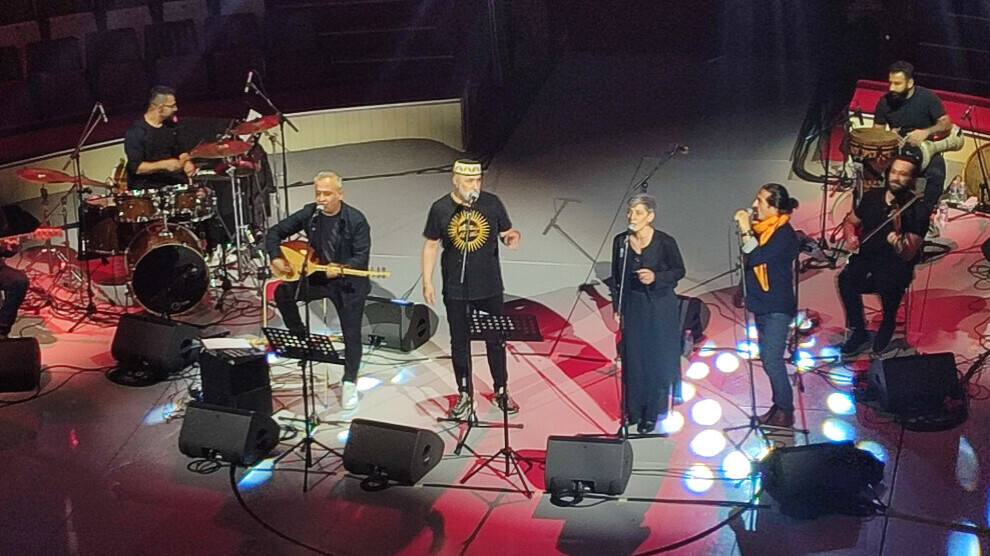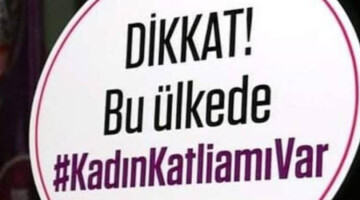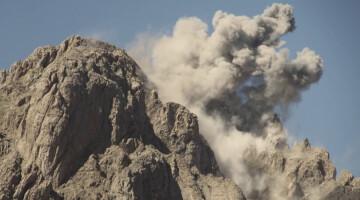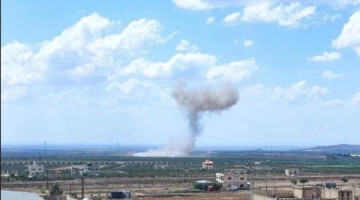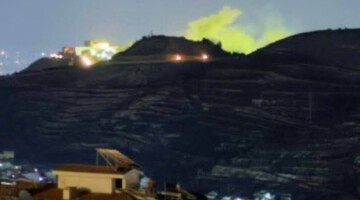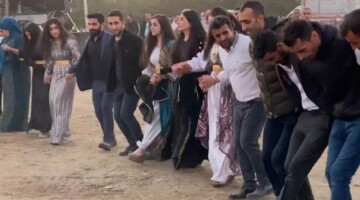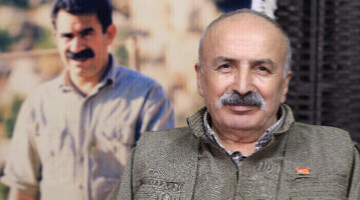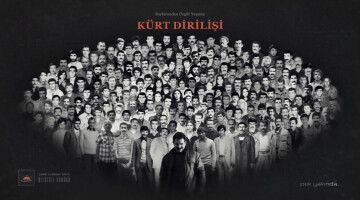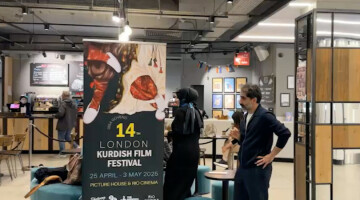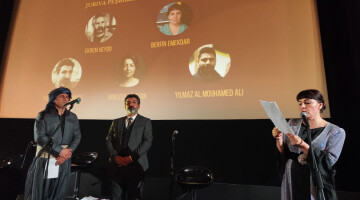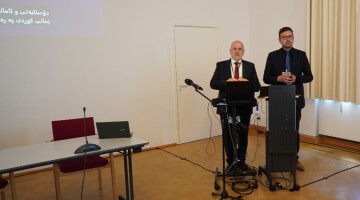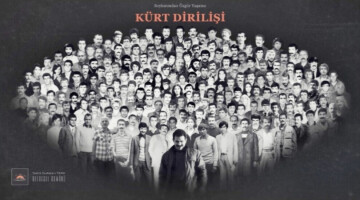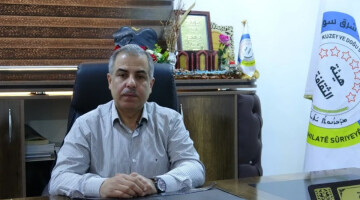KURDISH CULTURAL FESTIVAL IN PARIS
The 3rd Kurdish Cultural Festival Paris ended on Saturday with a concert by Deza Amed, Chopy and Koma Amed at the Cirque d'Hiver. The finale of the week-long series of events met with great interest and delighted the audience. The festival was organised by the Democratic Kurdish Council in France (CDK-F) in collaboration with the Institut de Réflexion et d'Études sur le Kurdistan (IREK), the Arts et Culture du Kurdistan (ACK) association, the France-Kurdistan association and the Fondation Danielle Mitterrand.
The concert started with a minute's silence in honour of the martyrs of the Kurdistan revolution, especially Evdilmelik Şêxbekir, one of the founders of Koma Amed, who was martyred five months after taking to the mountains in September 1991.
The final night of the festival was marked by an enthusiastic atmosphere that gave the audience unforgettable moments.
The festival, which aims to bring together Kurds in the diaspora against assimilation and cultural genocide and to promote Kurdish culture in the international arena, was organised in various cities in the Île-de-France region, mainly in Paris. During the week-long festival, many examples of Kurdish culture were exhibited.
Koma Amed
Founded in Ankara in 1988 by a group of students mainly from the medical faculty, Koma Amed emerged during a vibrant but tumultuous period for the Kurdish people. In a context where Kurdish culture and its language were severely repressed, the group could only express its music through rare gatherings.
Despite these challenges, Koma Amed recorded her first album, Kulîlka Azadî, in 1990. This album, recorded in a single day under extreme conditions, notably includes a Kurdish version of the international Italian song Bella Ciao (Çaw Bella). Through clandestine copies, the album reached a wide audience, marking several firsts for the Kurdish community.
In 1993, the group moved to Istanbul, where it joined the Mesopotamia Cultural Center (MKM). Koma Amed continued to make a name for himself as a pioneer of Kurdish group music, and released his second album, Agir û Mirov, in 1995. The members of the group were prevented from performing in Kurdistan, but toured across Turkey and Europe.
Their 1996 tour, sponsored by the Italian Rifondazione Communist Party, marked another historic first, showcasing Kurdish music across many Italian cities. The political spirit of emancipation and resistance infuses their compositions, which also draw on traditional Kurdish music and oral literature.
Their third album, Dergûş (1997), was a major turning point. The album transcended local borders to reach a global audience, thanks to an innovative approach to traditional Kurdish folk music. The impact of Dergûş was such that the Minister of Foreign Affairs at the time used the album to highlight the Kurdish presence in Turkey to European Union ministers.
However, political pressure forced many members of the group to seek asylum, dispersing them to various countries.
Chopy and Deza Amed
The other artists performing last night were Chopy and Deza Amed.
Chopy, born in 1983 in Kirkuk, in the heart of Iraqi Kurdistan, Chopy Fatah (or Çopî in Kurdish) is a renowned contemporary Kurdish singer. In 1988, she migrated with her family to the Netherlands, where she developed a passion for music and singing at a very young age. Her precocious talent allowed her to distinguish herself at school, where she won first prize in a singing competition.
Deza Amed, born in the Kurdish region of Karakoçan in 1982. Deza Amed emigrated to Paris in 1996, where he has resided ever since, proudly representing the Kurdish diaspora. Despite exile, he remains deeply attached to his Kurdish roots while embracing French culture with respect and affection. A committed Kurdish artist, he expresses himself through his works in Zazaki, a Kurdish dialect, to illustrate and defend the values of his people.

